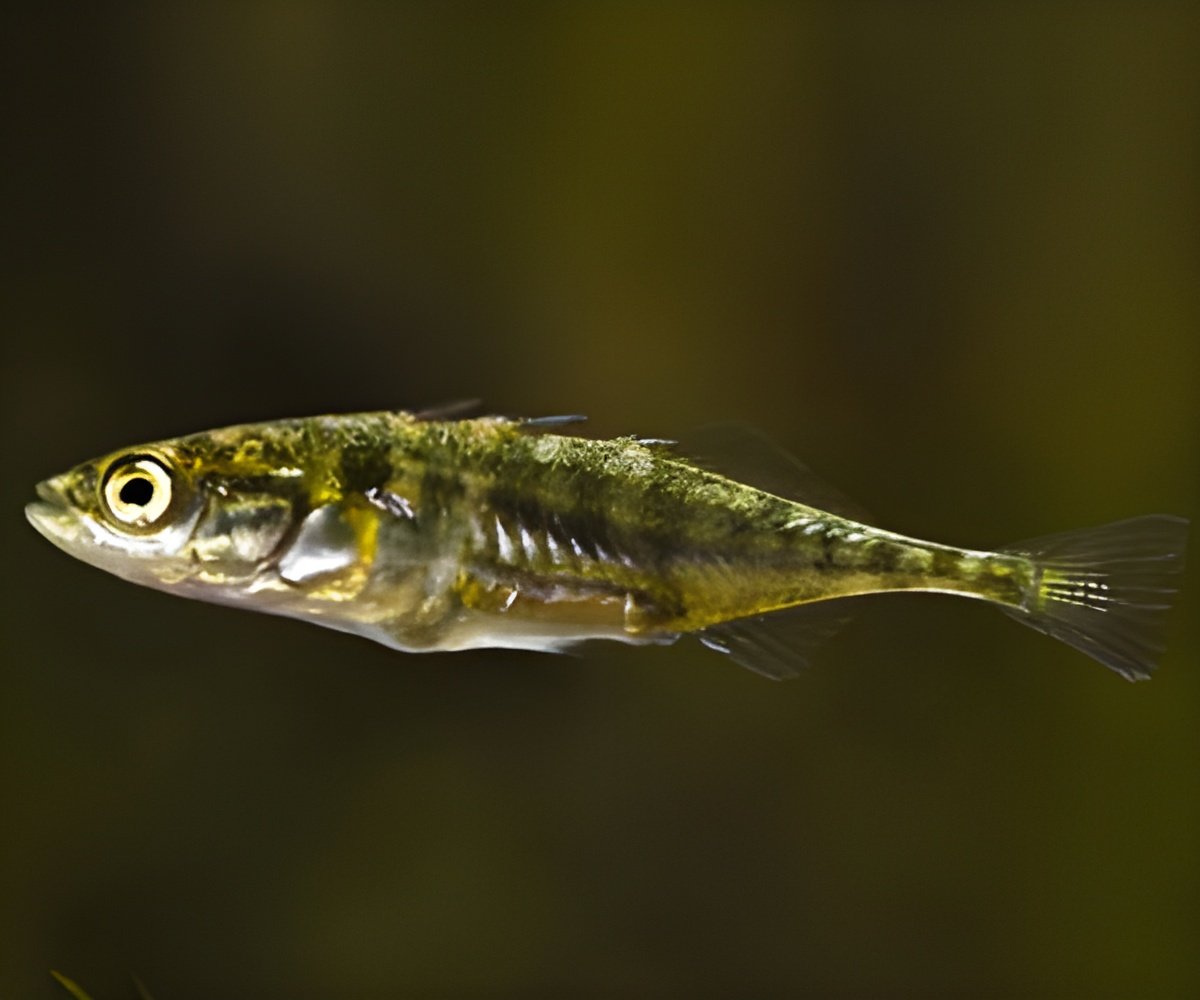
"There is lots of evidence that moms are very important for their offspring," said University of Illinois Animal Biology professor , who led the study with researcher Katie McGhee. "But we know much less about fathers."
Studies in mice, monkeys and voles, for example, show that maternal care and attentiveness to newborns can influence the future behavior of the young – even when these moms care for young that are not genetically related to them, Bell said. The behavioral changes are often linked to changes in gene expression via "methylation," a chemical process that reduces the rate at which specific genes are translated into proteins, she said.
The three-spined stickleback (Gasterosteus aculeatus) is a small fish species – it is up to the father, alone, to care for its offspring, making sticklebacks ideal organisms for the study of fatherly influence, Bell said.
The stickleback dad's job is a challenge, she said.
"Everybody loves to eat fish eggs; caviar is totally delicious, so you can imagine how in the wild everybody and their mother is trying to eat the stickleback's clutch of eggs," she said. "So males are very aggressive towards intruders, and they spend a lot of time just hanging out at their nest and defending it."
Advertisement
"The dad is actually handling the fry in his mouth," she said. "He'll chase them down, suck them up into his mouth and then spit them back into his nest. Early studies in sticklebacks suggested that fry are learning about predators by having their dad chase after them."
Advertisement
Source-Eurekalert















